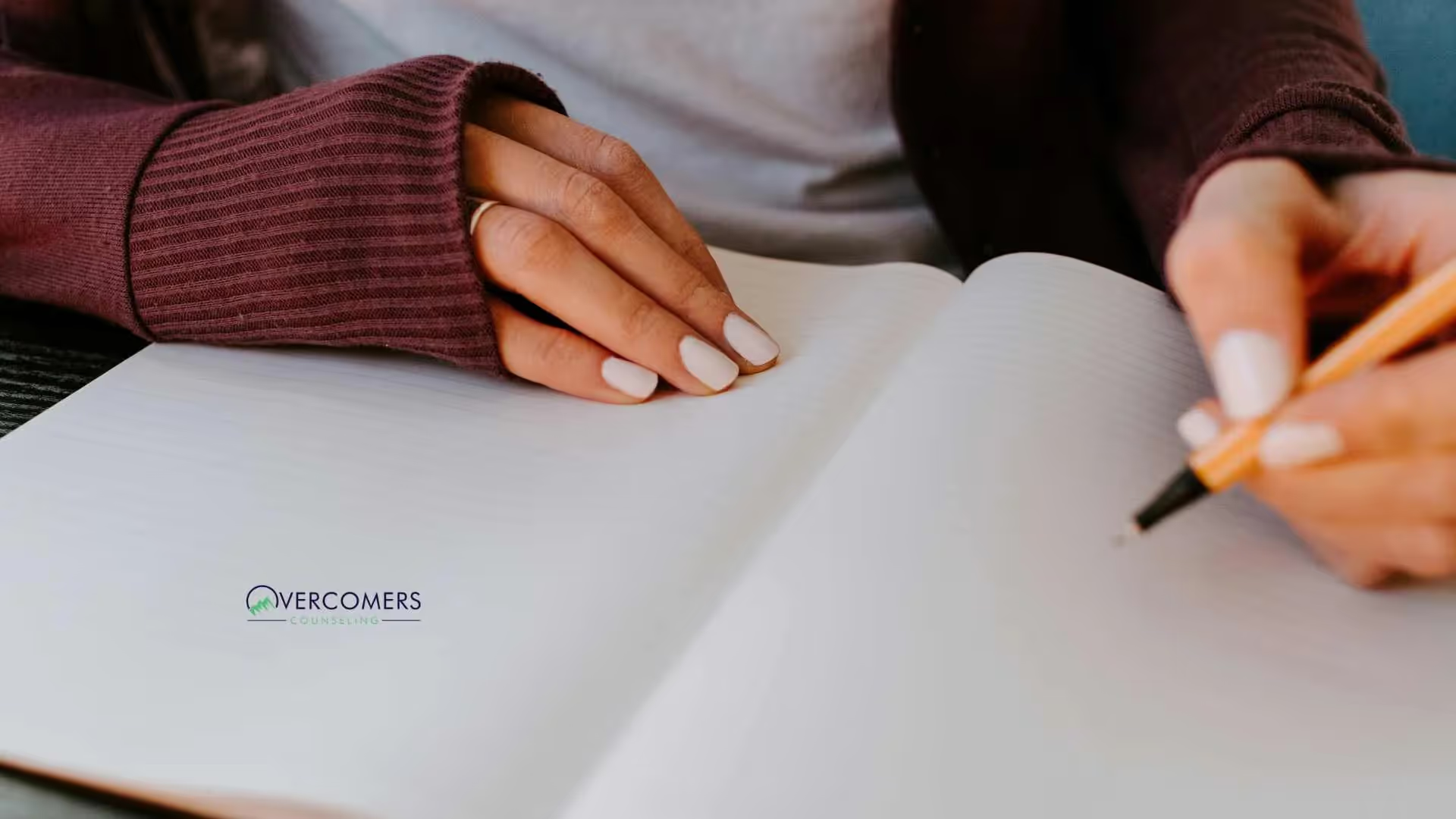Welcome to the Overcomers Counseling guide on Cognitive Behavioral Therapy (CBT) for addiction in Colorado.This comprehensive resource aims to provide a...

Welcome to the Overcomers Counseling guide on Cognitive Behavioral Therapy (CBT) for addiction in Colorado.
This comprehensive resource aims to provide a basic level of understanding on how CBT, a pivotal part of our addiction counseling, plays a crucial role in tackling substance use disorders and mental health conditions.
Through this guide, you'll gain insights into the fundamental principles of CBT and its specific application in addressing both substance abuse and broader mental health disorders.
We'll provide links that point to evidence of its effectiveness, including data and personal stories from individuals who have experienced significant transformations in their lives thanks to CBT.
If you are exploring addiction treatment options or seeking to understand the benefits of including dialectical behavior therapy alongside CBT in a recovery plan, then this guide is designed to support you on your journey towards healing and recovery in Colorado.
{loadmoduleid 728}
{loadmoduleid 178}
Cognitive Behavioral Therapy (CBT) for addiction is a structured, time-limited psychotherapy approach that aims to reduce substance use disorders by helping individuals recognize and change maladaptive thoughts and behaviors related to their addiction.
It equips individuals with strategies to manage cravings, avoid triggers, and cope with the underlying mental health issues that often co-occur with substance abuse.
When one focuses on the interconnectedness of thoughts, feelings, and behaviors, then CBT can focus on addressing the root causes of addiction to facilitate long-term recovery and improve overall mental well-being.
Engaging in cognitive behavioral therapy (CBT) for addiction in Colorado involves the following.
Session Activities Include
Treatment Duration
Additional Components
Homework
This structured approach not only focuses on overcoming substance use disorder but also ensures participants are equipped with the necessary tools for long-term management and a healthier future.

In the therapy and counseling world of Cognitive Behavioral Therapy (CBT) for Addiction, a key skill lies in uncovering triggers—factors that increase the likelihood of substance use.
Recognizing our triggers is one thing, but understanding the underlying reasons they influence us toward substance use can be more challenging.
At times, the cause of our substance use isn't immediately clear, and pinpointing what triggers us can pave the way for a different response.
Types of Triggers
Example "The last time I used, it was with my roommate, who often has substances at our apartment."
Example "I typically use in my friend's garage where we gather on weekends; the setting itself seems to prompt thoughts of using."
Example "I notice that I'm usually feeling stressed or lonely before I decide to use."
Example "Before using, I often think that just once more won't hurt, but afterwards, I'm filled with regret."
Example "I started using again when my chronic back pain worsened."
As part of the CBT process, individuals may be encouraged to explore the concept of cravings and urges.
Cravings are intense desires for drugs or alcohol that can be triggered by external factors such as people, places, events, emotions, or internal cues like thoughts and physical sensations.
Urges are the subsequent impulses to use substances in response to these triggers.
Types of Cravings
You can expect to learn about the different types of cravings for which CBT can provide assistance in overcoming.
Treatment Examples
Take Home Work
Participants are encouraged to observe any cravings or urges throughout the week, promoting an awareness that aids in managing triggers.
Engaging in CBT for addiction provides invaluable insights into how to challenge negative thought patterns, address anxiety disorders, and develop healthy coping strategies.
This treatment approach often incorporates other modalities like motivational interviewing and commitment therapy, all aimed at treating addiction and promoting recovery.
It's crucial to engage with these processes alongside a professional therapist who can offer expert advice, accountability, and tailored strategies for relapse prevention and negative self-talk.
While practicing aspects of CBT at home can be beneficial, the guidance of a therapist can dramatically enhance the treatment experience, ensuring that individuals gain insight and tools necessary for maintaining progress and promoting long-term recovery.

If you're feeling overwhelmed by the battle with addiction, I want you to know there's a path forward that's proven to be effective.
Cognitive Behavioral Therapy (CBT) for addiction here in Colorado is more than just a treatment; it's a step towards understanding yourself, your triggers, and how to manage them without falling back on substances.
It's about transforming the harmful thoughts and behaviors that have taken root into something positive that supports your recovery.
Find a Colorado Therapist or Counselor Right Now
We've got a range of Available CBT Counselors in Colorado ready to work with you.
Each one brings their expertise in cognitive behavioral therapy for addiction in Colorado, offering personalized one-on-one sessions that cater to your unique situation.
You may be dealing with family issues caused by addiction, struggling to stay present in your daily life, or trying to break free from negative self-talk and behaviors, our therapists are here to help.
And if you're worried about the effectiveness of this approach, rest assured, CBT is an effective tool in the arsenal against addiction.
It plays a critical role in fostering self-awareness, challenging your thought process, and developing healthier habits.
No matter where you are in Colorado, our online therapy options mean support is always within reach.
We can connect via our online therapy portal for Addiction Therapy in Boulder, Denver, or anywhere you find yourself in the state.
It's flexible, it's effective, and it's designed to fit into your daily life without adding unnecessary stress.
Every individual's journey to recovery is unique, and it often requires more than just willpower.
It requires a commitment to change, a willingness to explore oneself, and the support of professionals who can guide and stand by you every step of the way.
I invite you to take that first step now. Schedule a session or join a waitlist.
There are many different counselors available, so take your time to find the one that feels right for you.
Together, we can tackle your addiction needs, employing an evidence-based approach to therapy that includes CBT and other supportive therapies, suited to your personal experience and challenges.
Schedule a Session Right Now. It's time to reclaim your life from addiction, and you don't have to do it alone.
Having a professional guide you through the process of identifying and addressing these triggers can be invaluable.
Office Locations
5585 Erindale Dr Suite 204Colorado Springs, CO 80918(719) 345-2424
4440 Barnes Rd Suite 100Colorado Springs, CO 80917(719) 602-1342
825 E Citadel Dr Suite 250Colorado Springs, CO 80909(719) 452-4374
2860 S Circle Dr Suite G45Colorado Springs, CO 80906(719) 481-3518
5245 Centennial Blvd Suite 205Colorado Springs, CO 80919(719) 203-7021
3091 S Jamaica Ct Suite 140Aurora, CO 80014(720) 449-4121
2099 US-50 Suite 160Pueblo, CO 81008(719) 696-3439
A therapist trained in cognitive behavior therapy offers not only expert advice but also accountability, making it easier to confront and work through these triggers.
Treatment centers provide a structured environment where cognitive therapy, alongside other methods like exercise therapy, supports recovery by fostering healthy coping mechanisms and challenging negative thought patterns.
This comprehensive approach to disorder treatment ensures individuals are not just treated for addiction but are also equipped with the skills needed for a healthier, more resilient life.
Yes! We offer Cognitive Behavioral (CBT) in Colorado through in‑person sessions and secure online therapy. Whether someone is located in a major city or a quieter rural area, they can connect with a therapist trained in Cognitive Behavioral (CBT) across the state.
Absolutely. Cognitive Behavioral (CBT) for teens supports young people facing emotional, social, and behavioral challenges. Therapists use the principles of Cognitive Behavioral (CBT) to help teens build resilience, understand their emotions, and develop healthier ways of coping.
People often seek Cognitive Behavioral (CBT) when dealing with anxiety, stress, trauma, relationship concerns, or life transitions. Cognitive Behavioral (CBT) helps clients recognize patterns, manage emotions, and build tools that support long‑term growth and wellbeing.
Many insurance plans do cover Cognitive Behavioral (CBT), and we can help verify benefits before beginning therapy. Private‑pay options are also available to ensure Cognitive Behavioral (CBT) is accessible to those who need it.
Cognitive Behavioral (CBT) blends established therapeutic methods with a tailored approach designed to support emotional healing and personal growth. In Cognitive Behavioral (CBT), the therapist helps clients explore their challenges while using techniques specific to this model, creating a space where insight, resilience, and clarity can genuinely develop.